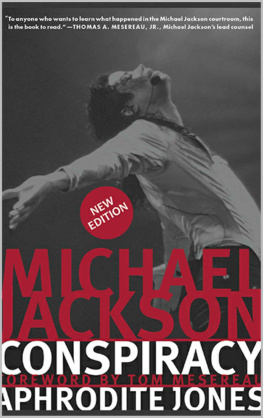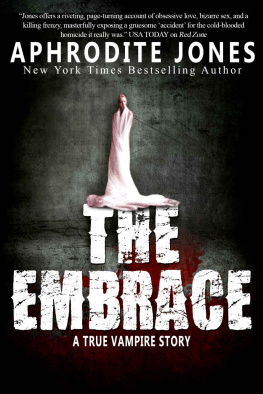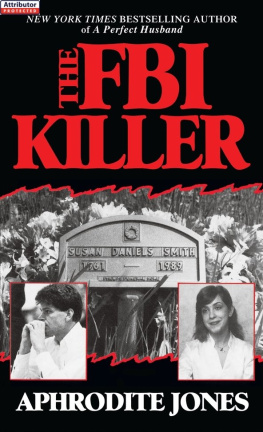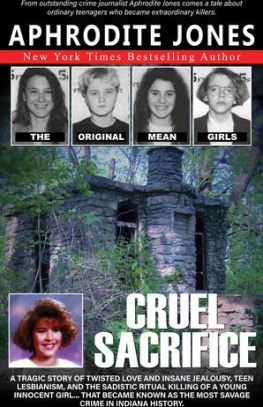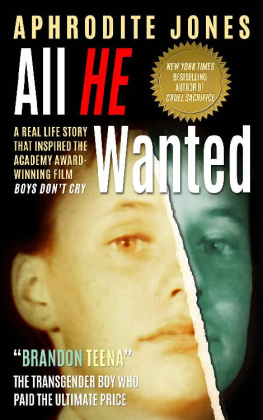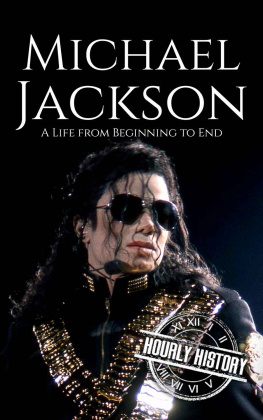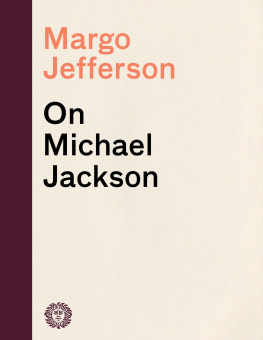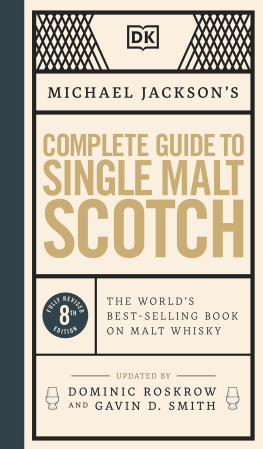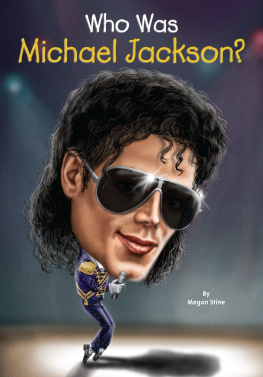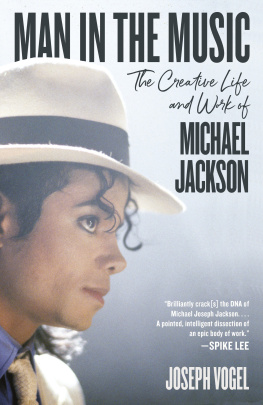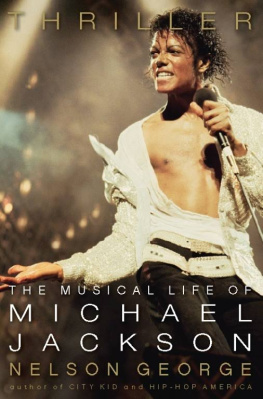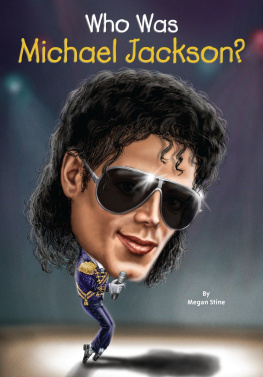Michael Jackson
Conspiracy
Aphrodite Jones
Copyright 2007 by Aphrodite Jones
All rights reserved.
No part of this book may be used or reproduced by any means, graphic, electronic, or mechanical, including photocopying, recording, taping or by any information storage retrieval system without the written permission of the publisher except in the case of brief quotations embodied in critical articles and reviews.
Table of Contents
For my darling, precious John,
the love of my life.
To live would be an awfully big adventure.
Peter Pan
Authors Note
THE DAY MICHAEL JACKSON WAS EXONERATED, I WAS ASKED what I really thought about the verdicts by FOX star Bill OReilly. For months, I had been commenting about the trial for FOX News, saying many things against Jackson, leading viewers to believe the pop star was guilty. When OReilly pressed me for an answer on the not guilty verdicts, I was stammering. OReilly wanted a straight answer, and I finally said I thought the jury did the right thing.
But part of me was still in shock.
As I made one of my last public comments on the case, I realized that I had become one of the media folks who had predetermined the outcome of the trial, wrongly. Many people around me were so sure of Jacksons guilt. Certain reporters had slanted TV and radio coverage to suit the prosecution, and I was one of the people who followed that dangerous trend.
Somehow, I had missed the truth.
When I read the accounts of the NOT GUILTY verdicts in all the newspapers, I felt ashamed to have been part of the media machine that seemed hell-bent on destroying Jackson. After I thought about it for a few hours, I contacted the jury foreman, Paul Rodriguez, who talked to me about Jackson, who asserted that Jackson had been a target. The jury foreman said Michael Jackson was truly not guilty of the charges. He felt Jackson had been victimized by the media.
Writing a book about Jacksons innocence never crossed my mind, not during the trial in Santa Maria. I respected Tom Mesereau as an attorney, and I came to see why the jury voted not guilty on every charge, but I had no intention of revealing my own slanted news coverage. Beyond that, I certainly didnt want to expose any of my media friends as being one-sided and unfair.
To make it clear: there were twenty-two hundred credentialed media people at the trial, and less than a handful of people admitted their deliberate attempts to portray Michael Jackson as guilty. Some of those media folks were a part of my inner circle. I have not named names of any media person in this book, other than Mr. Martin Bashir, because it would be in bad taste to point fingers. Viewers who followed the trial know who the culprits are.
I must admit that there was a point during the trial, toward the end, when I came to feel sad about Jackson, when I felt the whole media world was against him. I wanted the fans to know that I wasnt happy about the media coverage and decided to go down to the gates of Neverland to make peace with his fans. I went to tell people that I wasnt trying to be unfair to Michael, that I was just reporting the facts. I tried to convince them that I didnt have an agenda.
But the fans didnt believe me. Theyd seen my newscasts, and many thought I was lying. I stayed for quite a while, trying to tell people that I wasnt out to smear Jackson, but they werent interested.
As I listened to his fans, who had flown in from places like Spain, Ireland, and even Iran, they told me their side of the story. I heard them insist that the American media was tainted, that Americans hated Jackson for all the wrong reasons. Some people brought up the race card. Others talked about Michaels friendships with children as being acceptable in any part of the worldother than America.
His fans impressed me. Yes, there were a few overzealous peopleone woman called me a whore in Spanishbut at the same time, many of his supporters were good-hearted. Some wanted to give me the benefit of the doubt.
I appreciated that.
I took pictures with a few fans at the front gates of Neverland, which was covered in hearts by those who loved Michael. After a while, a small group of us began to laugh about the Arvizo clan and their crazy rebuttal tape. We were mimicking Janet Arvizo, who, on tape, supported Michael Jackson as her only family. On the rebuttal tape, Janet wondered why, after the airing of the Bashir interview, there were so many people suddenly showing care and concern for her, when really, only Michael was supportive of her family.
In unison, we repeated Janets lines:
Where were they, when I couldnt feed my children, even a box of cereal?
Where were they, when my children and I would weep?
Where were they, when my children and I were lonely?
Where were they, when I didnt have enough money to pay for bus fare?
Where were they? we asked over and over, and we laughed about Janets melodramatic rantings.
Because of this visit to Neverland, my reportage took a slight turn. I became more open to the idea that Michael Jackson was not guilty, and I tried to stay away from the negative commentary that filled much of my earlier newscasts. Not only had I been one-sided on TV, I had contributed to Michael Reagans radio show (the adopted son of President Ronald Reagan) and had spent weeks on Reagans national programbashing Michael Jackson.
If there was a media conspiracy, I was guilty.
Some weeks later, as every last TV truck pulled out of Santa Maria, I found myself alone there, lost without the presence of Michael, lost without the comfort of having my media buddies to help me through another day. I felt upset.
Santa Maria was a nice place, but it became an empty shell for me. The Jackson event was over, and I became a stranger in a small town. I thought about my media friends and realized that many of them werent my friends at all. They had made use of my input and had already gone off to the next hot story. Some were reporting live from Aruba, in search of a missing teenage girl.
Luckily, I wasnt worried about the next news tidbit. I had a bigger picture in mind and had compiled all kinds of data. I still wanted to write a book about Jackson, because after all, I wasnt at the trial simply to report the news. I was there, primarily, as an author.
Since I was at the trial as a freelance TV reporter, I was left on my own to get myself shipped out, to get everything shipped back home. Sitting in Santa Maria with my thoughts, trying to determine what to do with all the documentation and stacks of notes Id written about the trial, I decided to ship every last thing, just in case the book materialized.
As I made my journey back to the East Coast, I thought about the financial waste that so many people, especially California taxpayers, had been subjected to. It was impossible to calculate the exact amount of dollars wasted, but the numbers had to be in the millions. The Jackson trial was one of the largest events in
U.S. history. The amount of money spent on security alone, was simply outrageous.
I considered the expensive impact fee I was asked to pay to Santa Maria, something I never encountered in any trial I attended in the history of my crime-writing career. I wondered why I was asked to pay so much money to be seated at a public proceeding that was supposed to be open to any U.S. taxpayer.
And finally, I wondered why some folks in the mainstream media seemed to think of me as less than a reporter, especially when there were people like Marcia Clark, who unsuccessfully prosecuted the O. J. Simpson trial, standing outside the Santa Maria courthouse as a reporter for Entertainment Tonight. It was amazing to me that certain network talent saw me as incapable of doing a TV reporting job. Even though Id been a TV reporter and TV commentator for years, all throughout the Jackson trial, I knew I was being trashed behind my back. Sometimes I was attacked verbally by reporters, even to my face.

